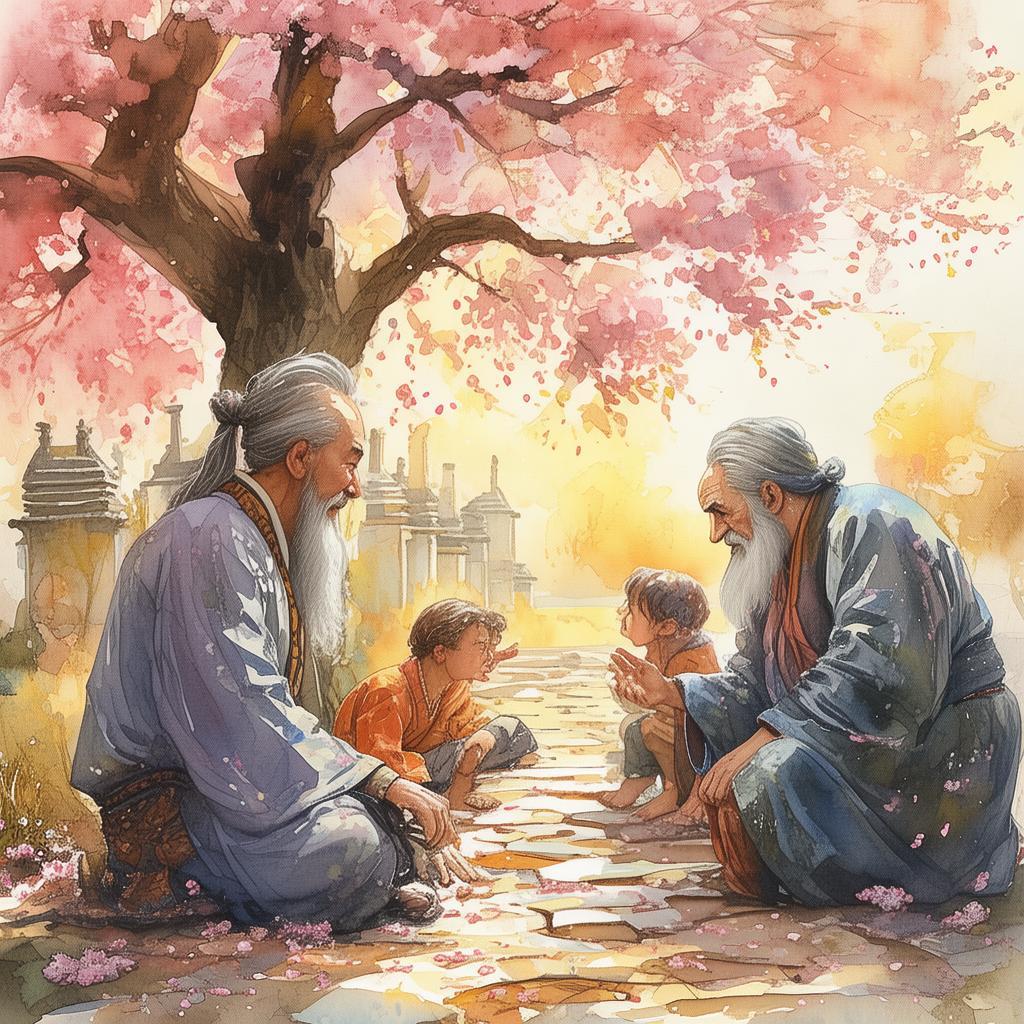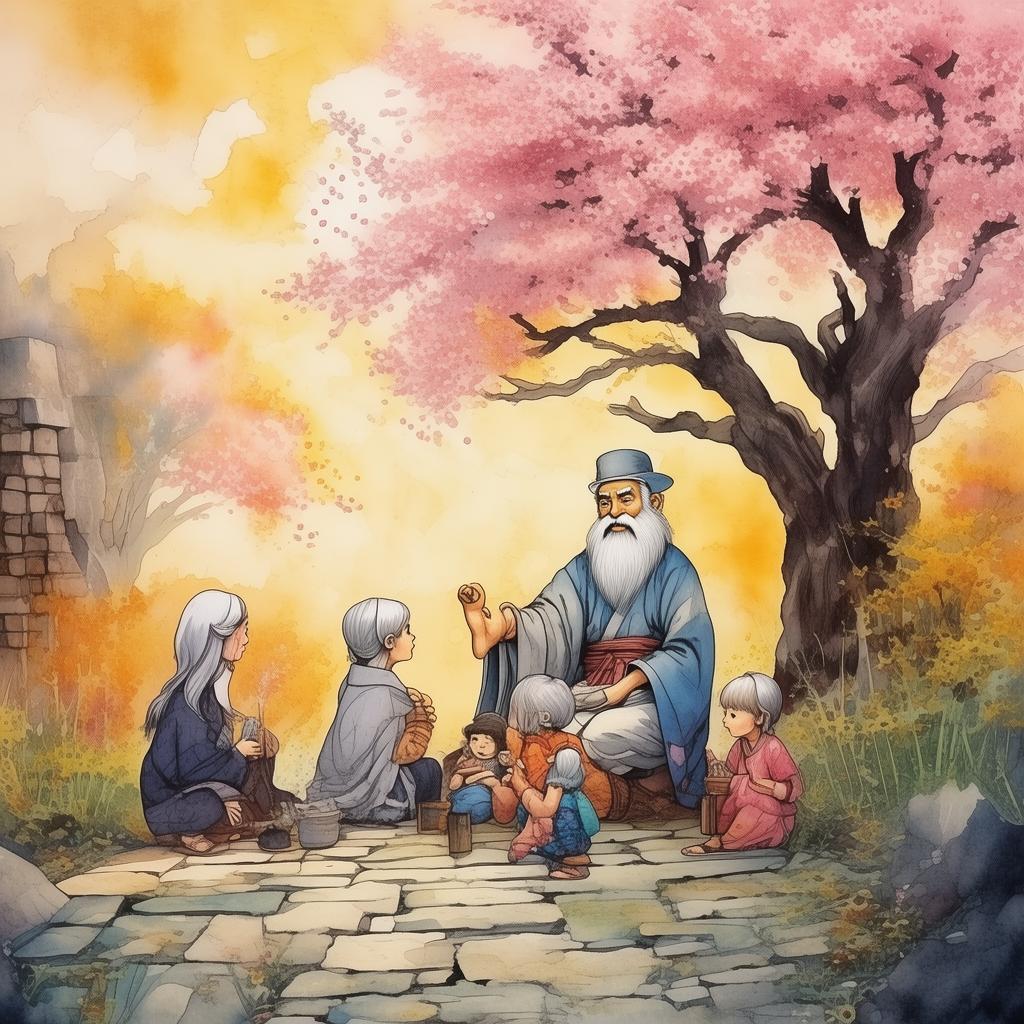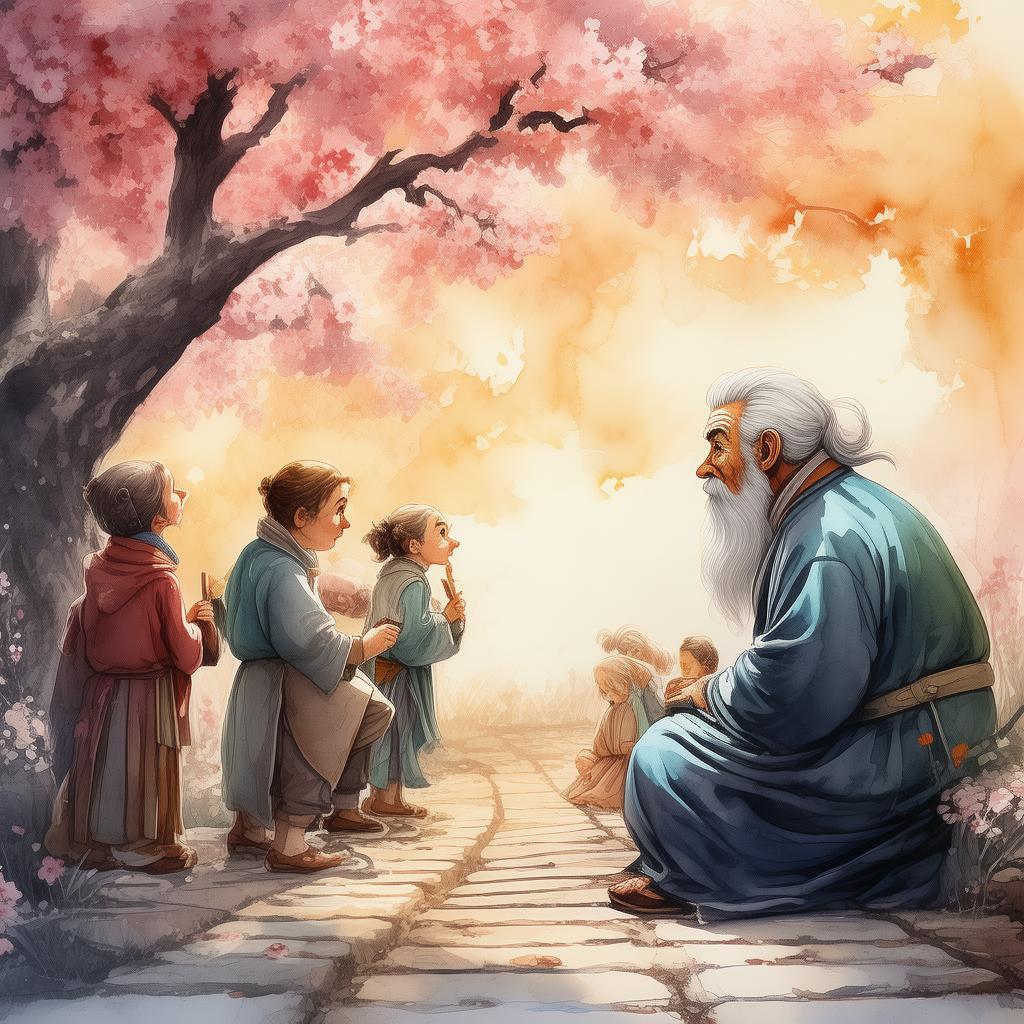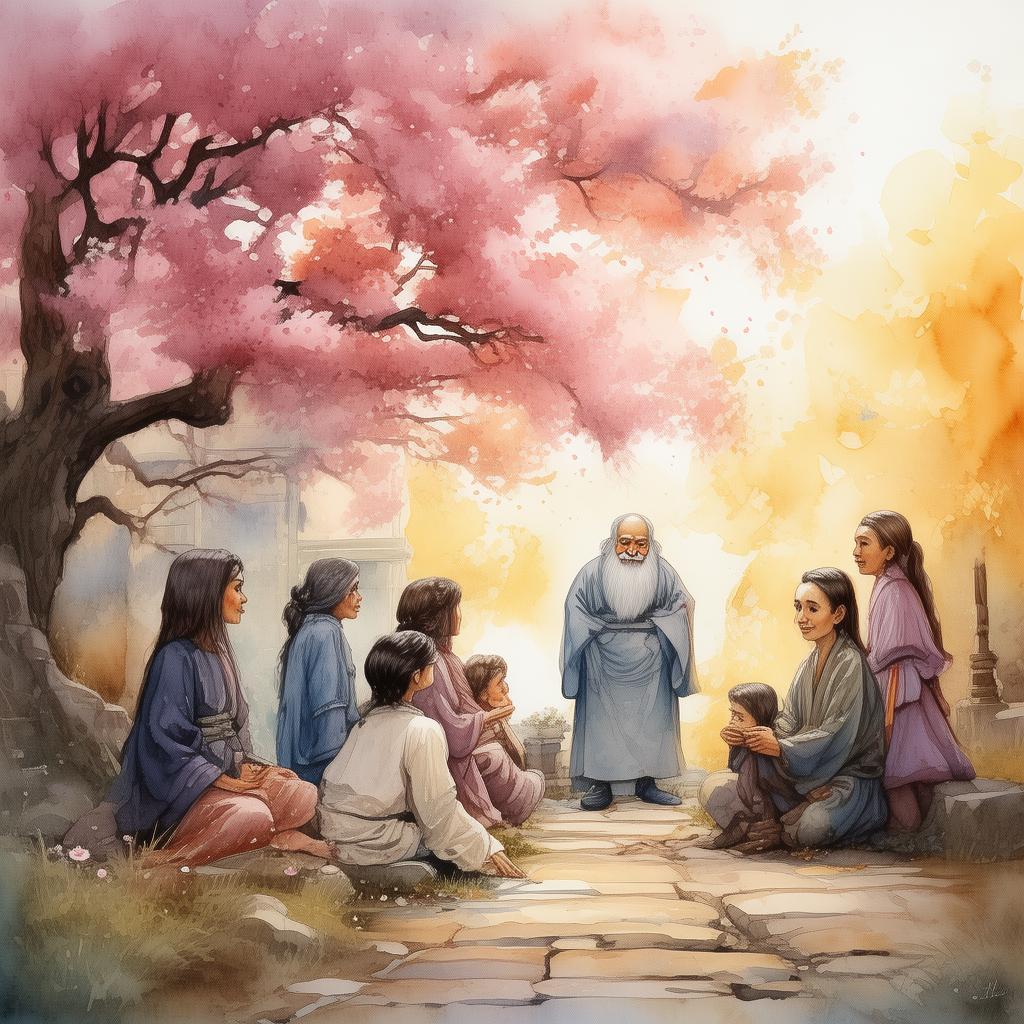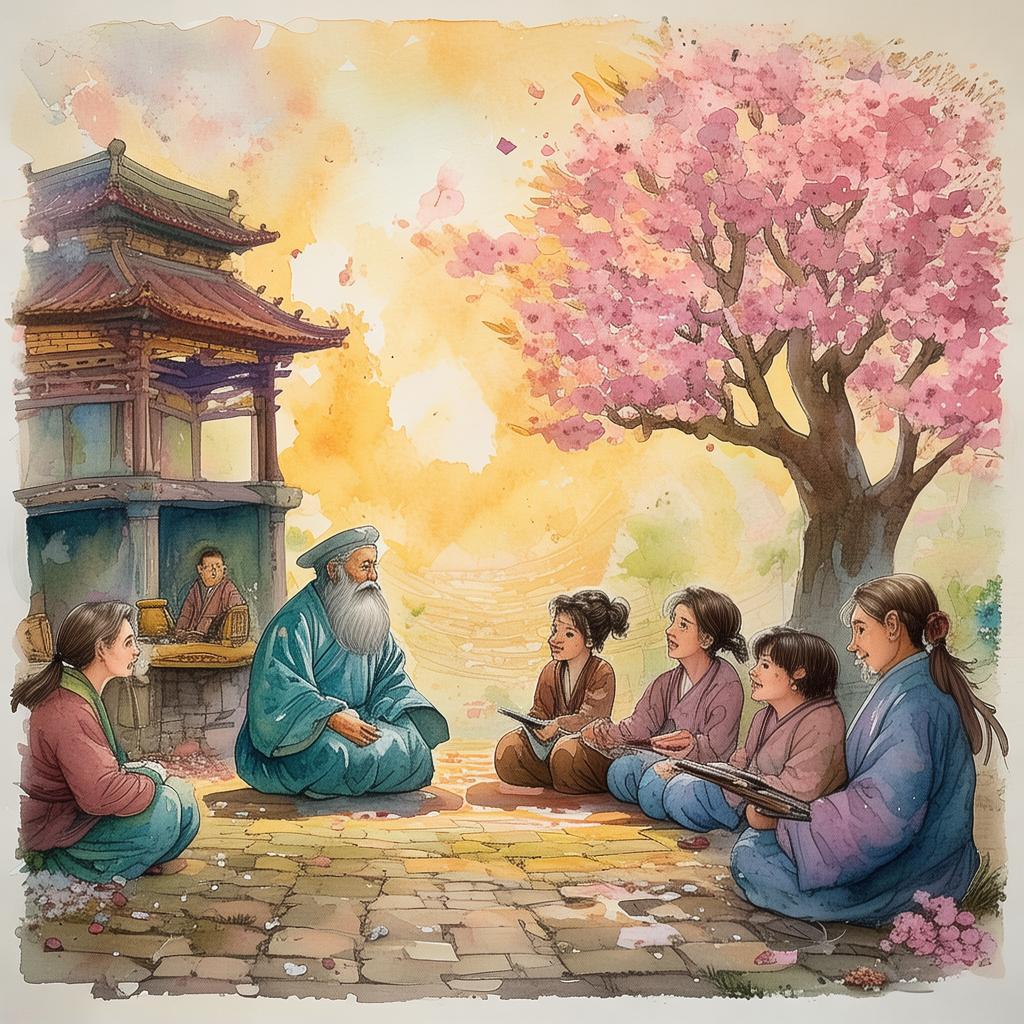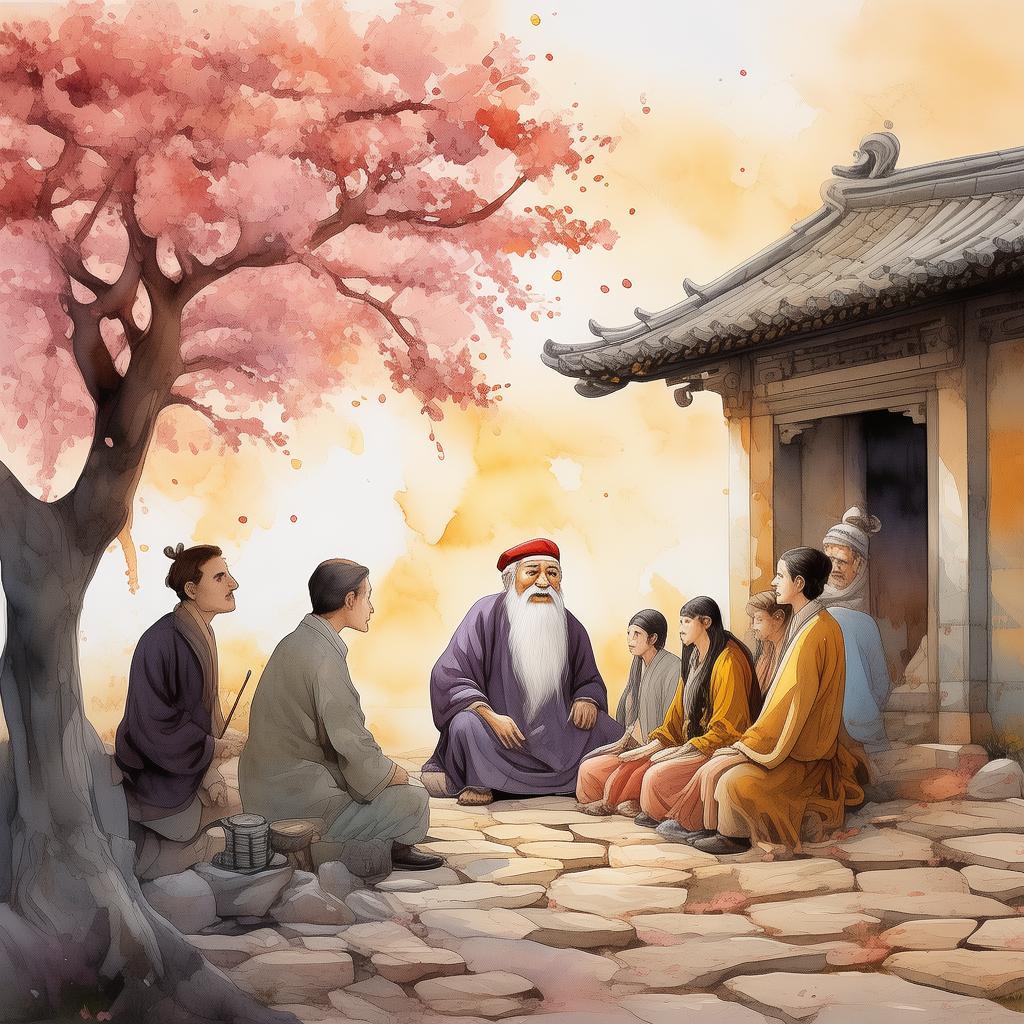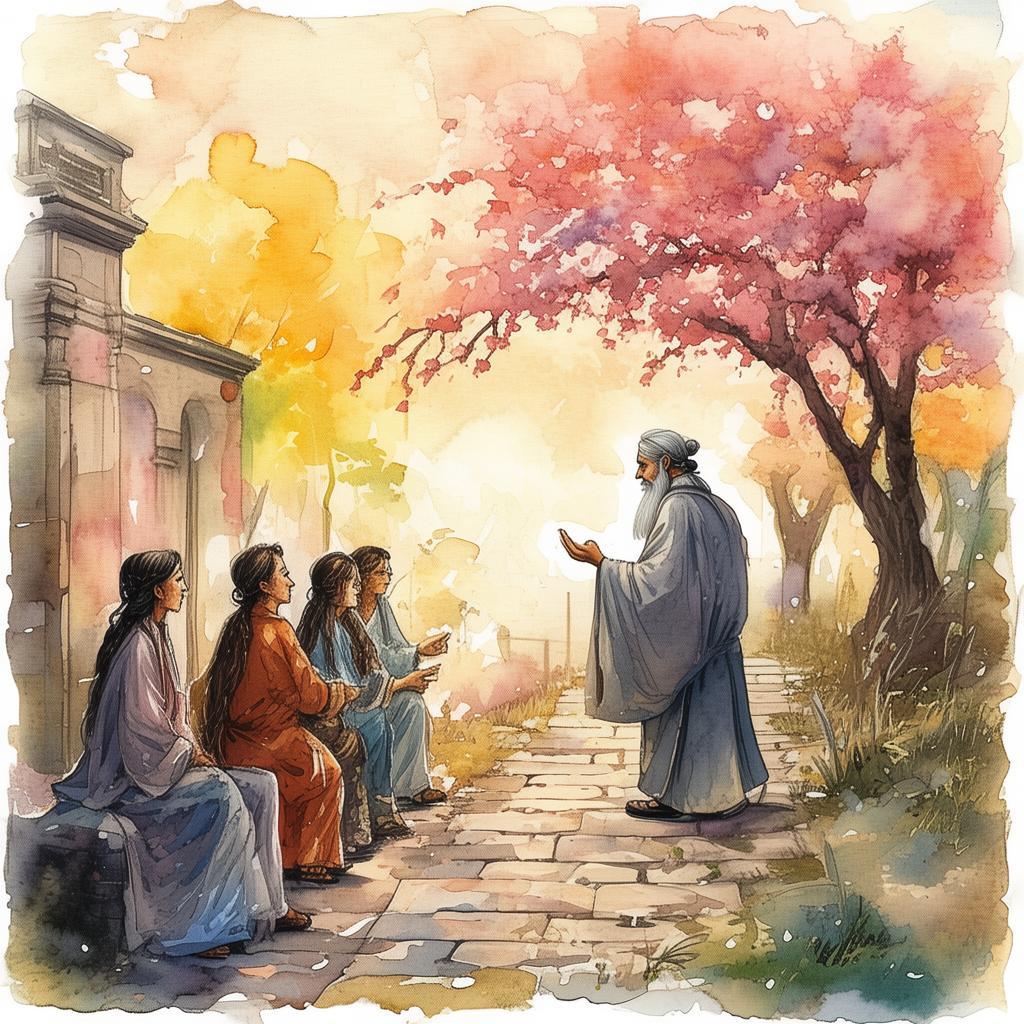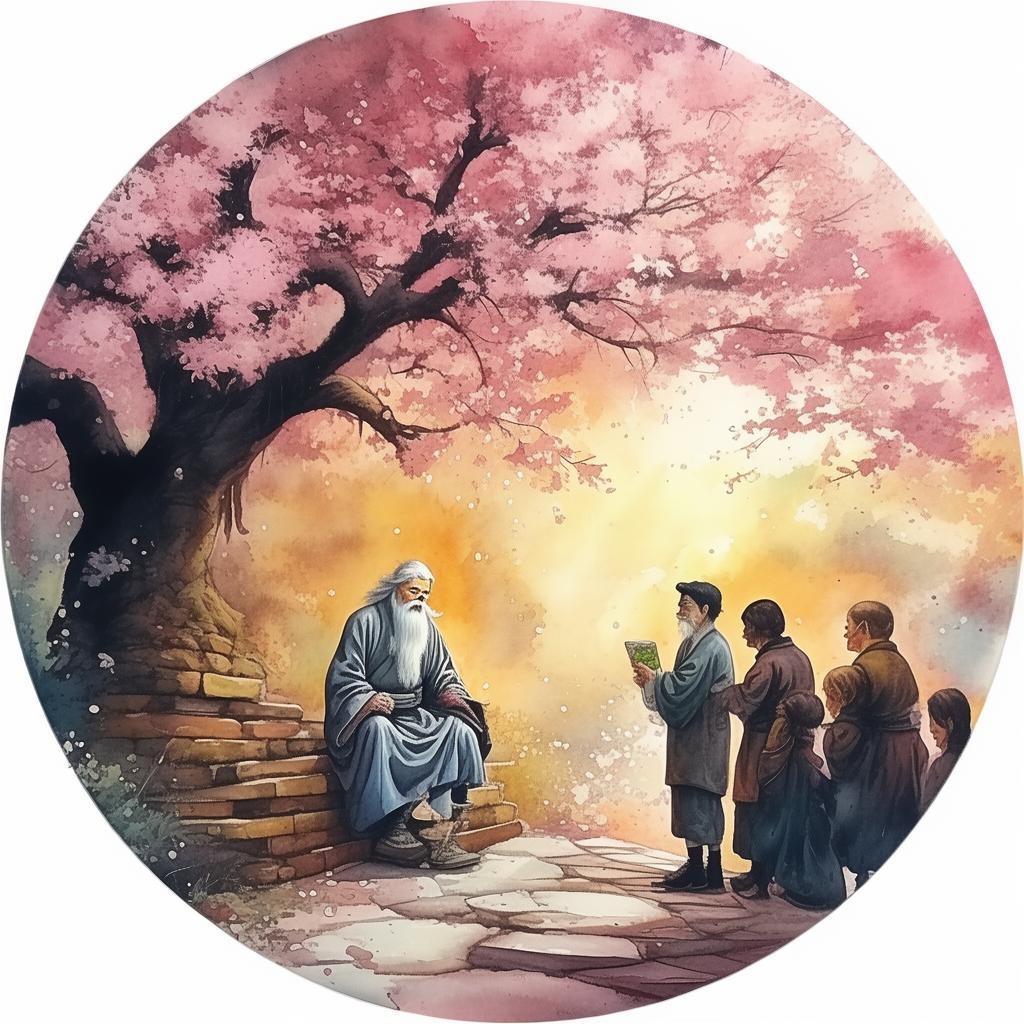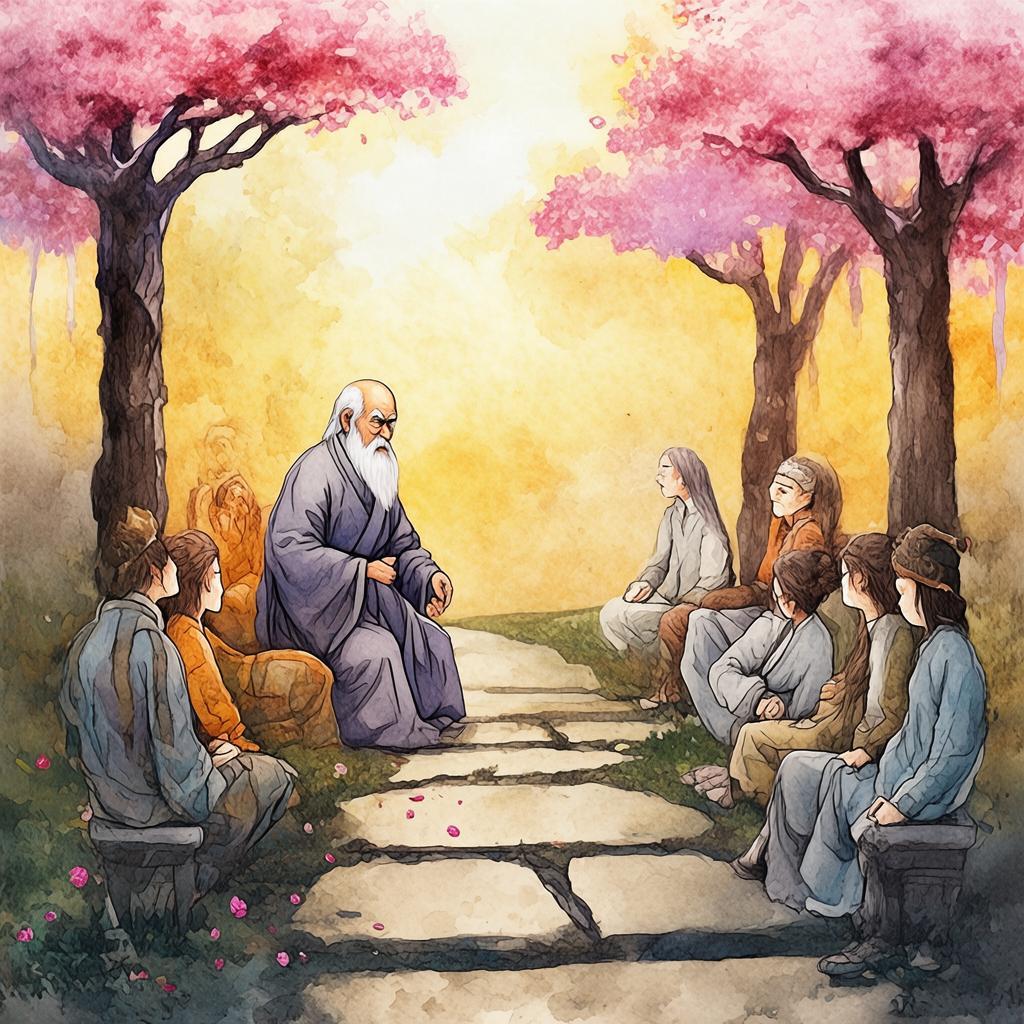The Idiomancer's Paradox: A University of Idioms' Dilemma
In the heart of the ancient city of Linghua, nestled within the hallowed walls of the University of Idioms, there lived an idiomancer named Zhiyu. Zhiyu was no ordinary scholar; he was a master of the idiomatic arts, capable of bending words to his will and weaving tales that could sway the very fate of nations. The University of Idioms was a beacon of wisdom, a place where the most profound and enigmatic idioms were studied and revered.
One fateful day, a paradox emerged that would shake the very foundations of the university. The idiom "The pen is mightier than the sword" had always been a cornerstone of the institution's philosophy, a testament to the power of words over brute force. However, Zhiyu discovered that this idiom, when pronounced in a certain way, could unravel the very fabric of reality, causing the very words to lose their meaning and the world to descend into chaos.
The university was thrown into turmoil. Professors and students alike were in a state of panic, unsure of how to proceed. The idiomancer's paradox had become a dilemma that threatened to unravel the very essence of their existence. The university's reputation, the knowledge they had accumulated over centuries, and the very language that bound them together were all at risk.
Zhiyu, with his unparalleled command of idiomatic language, knew that he was the only one who could solve this conundrum. He embarked on a quest to find the solution, traversing through the labyrinthine corridors of the university, delving into ancient texts, and seeking the counsel of the most revered scholars.
As he delved deeper, Zhiyu uncovered a hidden truth: the idiomancer's paradox was not a mistake but a test, a riddle that only the most brilliant of minds could solve. The university's survival hinged on his ability to unravel the paradox and restore balance to the idiomatic world.
In his quest, Zhiyu encountered a myriad of challenges. He had to navigate through a maze of idioms that were as treacherous as they were enlightening. Each idiom he encountered offered a clue, a piece of the puzzle that would ultimately lead him to the answer. Some idioms were riddles in themselves, while others were veiled in allegory, requiring Zhiyu to think outside the box.
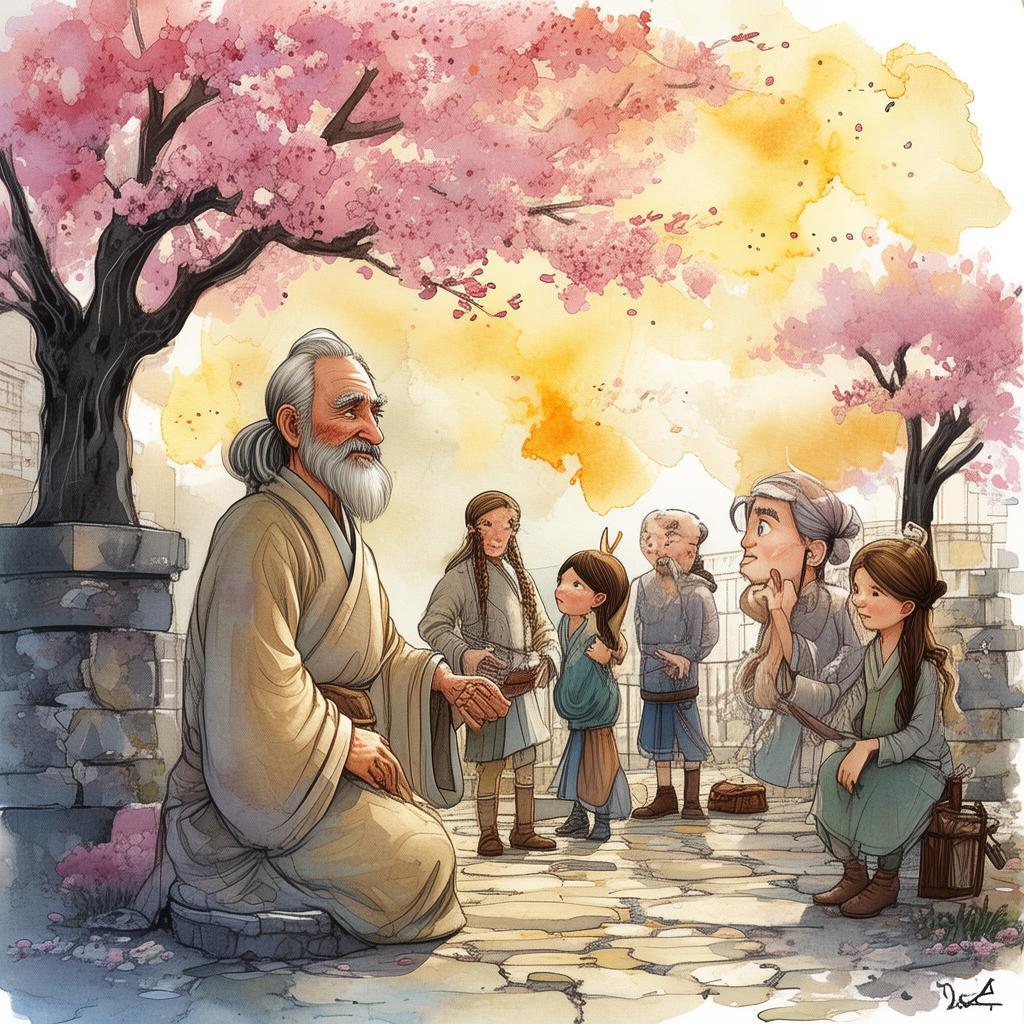
One such idiom was "A stitch in time saves nine." Zhiyu realized that this idiom spoke of the importance of timely action. He needed to act quickly to prevent the unraveling of reality. Another idiom, "A bird in the hand is worth two in the bush," taught him the value of seizing opportunities, even if they seemed risky.
As Zhiyu pieced together the puzzle, he discovered that the paradox was not just about the power of words but also about the responsibility that came with that power. He had to choose between the preservation of the university and the risk of losing the idiomatic world to chaos.
The climax of his quest came when Zhiyu stood before the university's most ancient and sacred book, the Codex of Idioms. The book was said to contain the ultimate truth about the power of idioms. As he opened the book, he found a passage that spoke of the idiomancer's paradox, and within it, the solution.
The solution was not what Zhiyu had expected. It required him to pronounce the idiom "The pen is mightier than the sword" in a way that would counteract its paradoxical effects. With a deep breath, Zhiyu recited the idiom, his voice echoing through the university's grand hall.
The paradox was dissolved, and the university was saved. The idiomatic world was once again in harmony, and the power of words was restored. Zhiyu had not only solved the idiomancer's paradox but had also redefined the university's philosophy, emphasizing the balance between the power of words and the responsibility that came with it.
The University of Idioms celebrated Zhiyu as a hero, and his name was etched into the annals of the institution's history. The idiomancer's paradox had become a legend, a tale of wisdom and courage that would be told for generations to come.
In the end, Zhiyu realized that the true power of idioms was not in their ability to shape reality but in the lessons they taught. The idiomatic world was a tapestry of wisdom, and it was up to those who wove it to ensure that it remained strong and vibrant.
The University of Idioms continued to thrive, a beacon of knowledge and a guardian of the idiomatic arts. And Zhiyu, the idiomancer who had solved the paradox, remained a symbol of hope and wisdom, reminding all that the power of words was a gift to be cherished and used responsibly.
✨ Original Statement ✨
All articles published on this website (including but not limited to text, images, videos, and other content) are original or authorized for reposting and are protected by relevant laws. Without the explicit written permission of this website, no individual or organization may copy, modify, repost, or use the content for commercial purposes.
If you need to quote or cooperate, please contact this site for authorization. We reserve the right to pursue legal responsibility for any unauthorized use.
Hereby declared.
